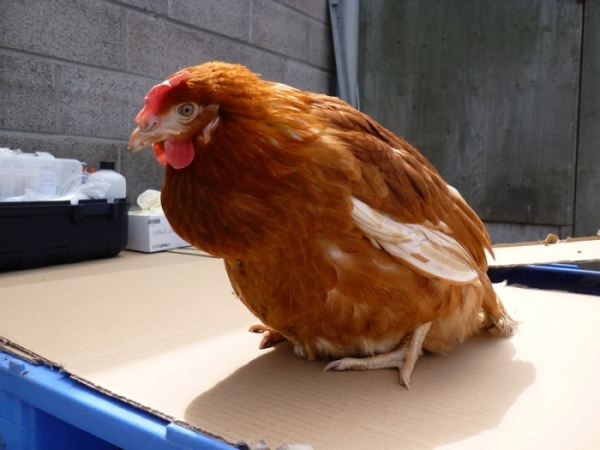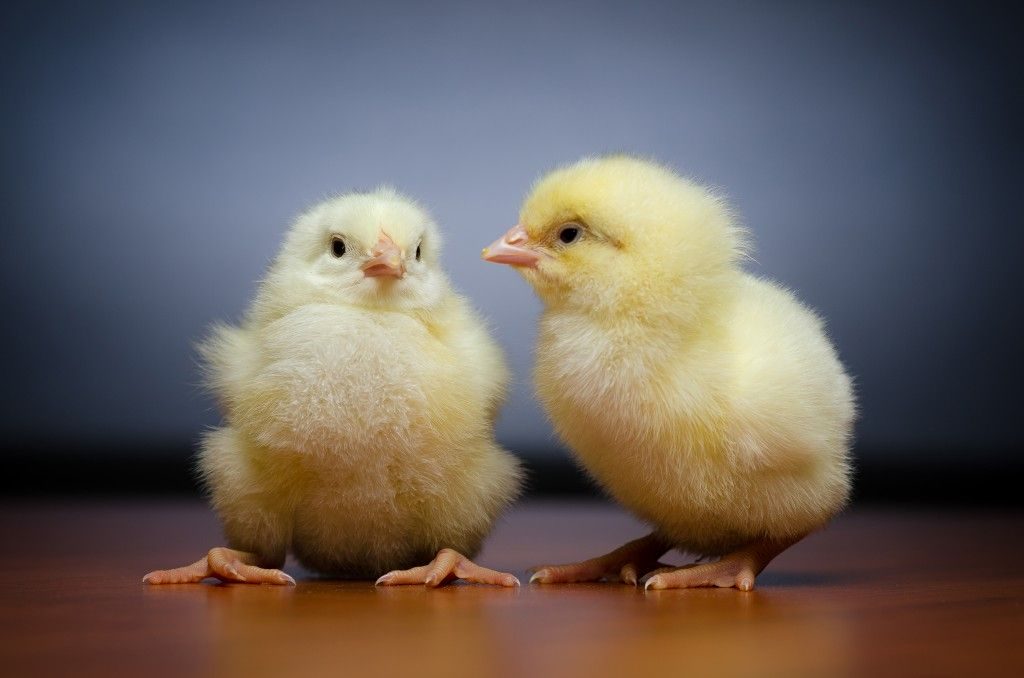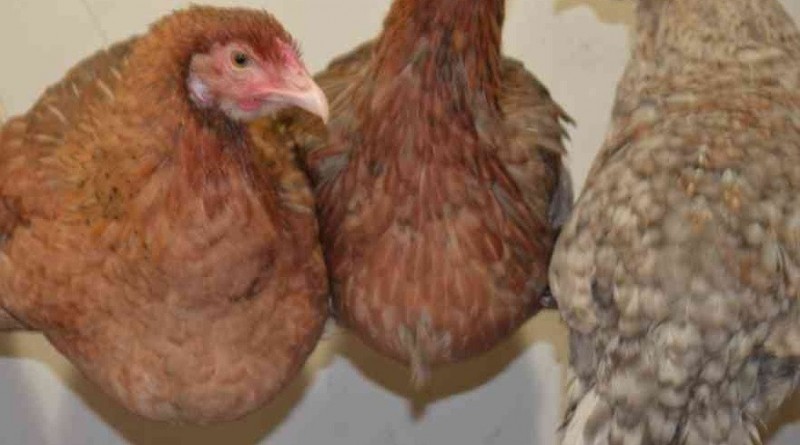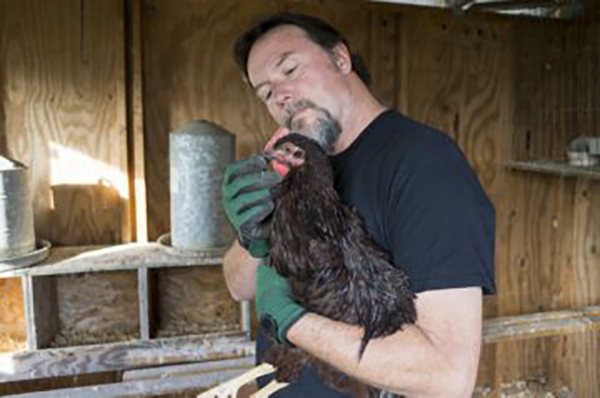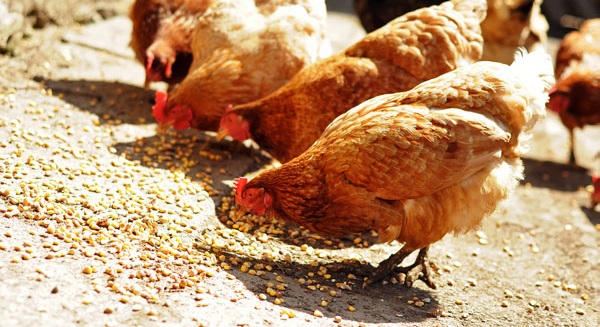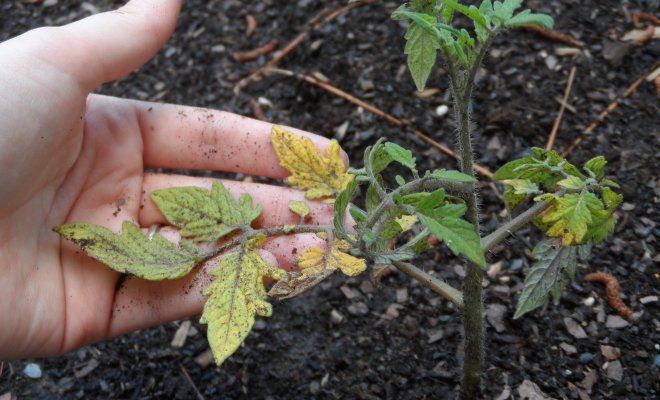Content:
Domestic chickens are native to Asia. A direct descendant of the Banking Jungle Chicken, the bird is highly domesticated today. For many centuries, almost no rural house (and not only a rural one) can do without chickens in its courtyard. And this love is fully deserved! After all, domestic chickens bring eggs, they can be eaten, and down and feathers can be used on the farm.
Chickens come in the following varieties:
- meat and egg;
- egg;
- meat.
To grow a healthy hen, no matter what direction it is, it must be properly fed and looked after from the first day of life.
Feeding chicks
Small chickens should be fed often and little by little. The best food for them will be cottage cheese mixed with chopped boiled chicken eggs and semolina or corn grits, as well as special feed, which is enriched with all the necessary substances and vitamins for this age. There should always be boiled water nearby, into which you can add a couple of crystals of potassium permanganate so that the solution is barely pink.
From three to five days, you can add green chopped grass: dandelion leaves, plantain, nettle.
From ten days of age, boiled potatoes, carrots and zucchini can be added to the diet of chickens. At the same time, you need to put a container with coarse sand or fine gravel for better grinding of food.
Goiter
This is the part of the esophagus that expands when filled with food and plays an important role in the digestive system of chickens and adult chickens. Immediately after the chicken has swallowed food, it goes into the goiter. Here food is pre-processed with special glands and sent to the stomach for further digestion. Thus, if the goiter fails, the entire digestive system of the chicken suffers.
Blocked goiter in chicks
If the chickens hatch under the supervision of a hen, then she teaches them to eat right, without overeating. In such cases, problems with a blockage or drooping goiter are rare. If chickens grow in a cage without a mother and are fed by a human, very often they can overeat. In this case, the thymus sac fills up very tightly and its muscles cannot cope with such a load. As a result, food slowly passes into the stomach.
The chicken has a large goiter what to do?
Unfortunately, the goiter is very vulnerable in birds. It is very often inflamed due to bacteria and fungi developing in the area of the goiter.
The following reasons can lead to problems with goiter:
- Contaminated liquid in the drinker. If the water is not too fresh and stands in the sun for a long time, various pathogenic fungi develop in it. Once in the goiter, they multiply rapidly, causing inflammation and growth of the candida fungi found in every body. This is why the drinker should be washed and cleaned daily, making sure to only give the chickens clean water.
- Unhealthy food. If poor-quality, spoiled products get into the feed of chickens or poultry, then there may also be problems with goiter.
- Poor, uneven nutrition. Feed the bird at the same time. The breaks between feedings should be the same.Otherwise, chickens literally pounce on food, and densely clog their goiter with food. The food rises in a strong lump and cannot go further, there is a blockage. The contents begin to rot inside this organ and, as a result, inflammation occurs. Poisoning with mold fungi occurs, candidiasis develops, the bird may die.
If no action is taken at the first sign of a problem, the chicken will probably die. On the contrary, timely help can save the bird.
If chickens are not fed regularly, they may develop a disease such as saggy goiter. It turns out this trouble in connection with the loss of the muscles of the goiter of its elasticity. As a result, the walls of the organ work worse, which affects digestion. In extreme forms, atony can develop - the muscles do not work at all.
Always monitor the quality of the litter. Chickens can peck at the litter, and then their goiter can become clogged with foreign bodies.
What to do if a chicken has a goiter?
If a blockage is found, but the laying hen leads a normal life, simply refusing to eat, then everything is simple - this is overeating. No treatment is required, and the hen just needs to be isolated from the rest and cleaned her goiter.
To do this, you need to mix a weak solution of potassium permanganate (slightly pink color of water) with liquid paraffin. Pour the resulting mixture with a syringe very carefully into the neck of the bird. Then massage the thymus with gentle rotations, take the chicken by the legs and shake it gently (as if distributing the paraffin between the contents in the goiter).
Everything must be done quickly and carefully, within 10 seconds, so that the chicken does not suffocate. After that, the stuck food should become soft and pass into the stomach.
Keep the chicken on a sparing diet for a few more days, that is, give only soft food: mashed vegetable puree, chopped chicken egg, hard-boiled, boiled wheat grits. And be sure to do a light goiter massage.
It is not recommended for beginners to carry out this procedure on their own. The first time you need to call a more experienced poultry farmer.
If the above measures did not help and the goiter is still huge, and no liquid is found in it, then in this case it will be necessary to cut it and clean it from the contents. Naturally, this procedure should be carried out by a veterinarian who will clean out the contents of the goiter and rinse it with an antiseptic. Although in private farms it is much easier to do it - the poultry is slaughtered for meat.
Candidiasis in chickens
With improper feeding, goiter candidiasis can develop. Symptoms are the same as with a simple blockage, only when palpating the goiter resembles a hard ball filled with liquid, and the smell of sour milk is felt from the bird's beak.
Due to the fact that the chicken does not eat or drink, the goiter is empty, dehydration of the body begins abruptly, which in turn leads to inevitable death. To cure a chicken, it is necessary to empty the contents of the goiter twice a day, pouring out the white liquid in which the candida mushrooms are located.
To do this, you need to take the chicken in your arms, lower it upside down and do a light massage of the goiter from the stomach to the neck (in this case, gurgling sounds are possible). If everything is done correctly, then the contents of the goiter will come out. Thereafter, the antibiotic Baytril 10% must be injected through a syringe into the chicken's throat immediately. After that, the chicken can be given yogurt or bioyogurt. The entire procedure must be carried out extremely carefully, without causing the chicken even more suffering. It is necessary to carry out such treatment twice a day for a week.
In no case should roughage and greens be given, so that the goiter does not clog again. This diet should be followed during the entire treatment. If the goiter is empty on examination, the antibiotics can be discontinued. It is best to isolate the hen from other individuals during treatment.
Many novice poultry farmers face such a problem as a large goiter in a broiler and do not know what to do. In principle, the diseases in broilers and in laying hens are the same. So a broiler's goiter can get clogged for similar reasons - because of poor-quality feed: large pieces of grass or vegetables, poor-quality grain, dirty water. The treatment methods for layers and broilers are similar.
Prevention of blockage of goiter
Many poultry farmers, especially beginners, are interested in the question of how to prevent atony and goiter inflammation. The question is relevant for those who raise broiler chickens. This is because broilers quickly build muscle mass and therefore eat more. As a result, the problem is more common.
In order for goiter diseases to bypass the chicken coop, it is necessary:
- Feed small chicks at regular intervals (after two hours, even at night), gradually increasing the interval between feedings. By two months, feed should be given twice a day, while still following the regimen.
- The quality of the feed must be high. It should always be freshly cooked, without large, tough pieces.
- A green grass mass must be present. It should be carefully chopped.
- Chickens and broilers should always have finely ground shells, fine gravel and coarse sand freely available.
You need to constantly inspect the bird population in order to notice possible problems in time. If necessary, treat the bird or slaughter it on time for meat. It should be remembered that most problems with goiter arise from a person's carelessness and negligence.
